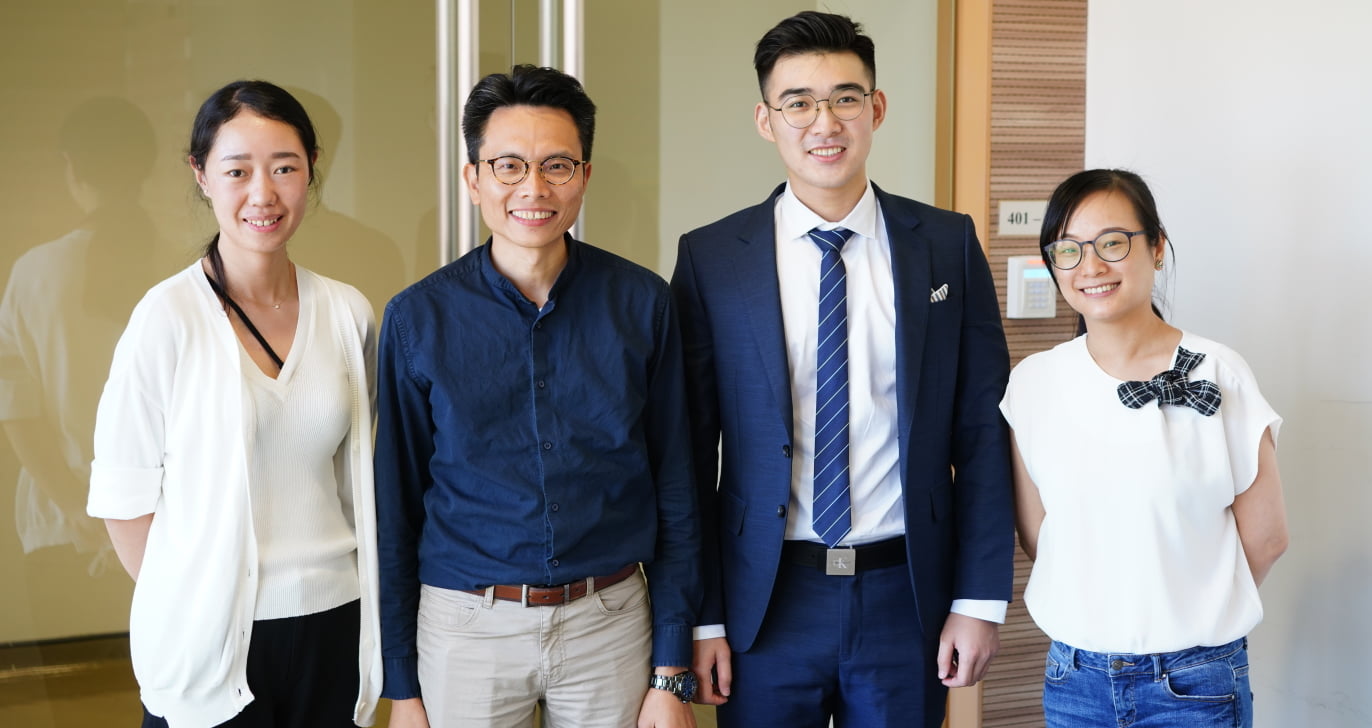A research study led by Prof. Alfred S.L. Cheng enhances immunotherapy through epigenetics
Immunotherapy is a major pillar of cancer therapy. Immune checkpoint inhibitors activate the cancer-killing T cells that had been suppressed by the cancer cells, leading to tumour shrinkage and improved survival rates. However, most of the liver cancers (hepatocellular carcinoma or HCC) are “cold” or T cell-excluded. A study conducted by Prof Alfred Sze-lok Cheng, Professor of the School of Biomedical Sciences (SBS), and Prof. Ka-fai To, Professor and Chairman of the Department of Anatomical and Cellular Pathology, CUHK uncovered that a cancer-promoting gene called HDAC8 is responsible for maintaining tumours that are immune cell-excluded. Inhibiting HDAC8 can lead to epigenetic reprogramming of the tumour cell and so increase the infiltration of T cells in the tumour (or turn the tumour “hot”).
Further study of the team showed that a new combined immunotherapy using HDAC8 and immune checkpoint inhibitor could protect the mice model, remaining tumour-free in HCC for at least 15 months with no evidence of side effects. The findings have been published in Science Translational Medicine, which can be viewed HERE.
The co-first authors of the paper include Dr. Weiqin Yang, Research Associate of SBS, Dr. Yu Feng, PhD graduate of SBS and Prof. Jingying Zhou, Research Assistant Professor of SBS. The related coverage by the Communications and Public Relations Office, CUHK can be viewed HERE.
免疫療法是治療癌症其中一個主要方案,免疫檢查點抑制劑可激活免疫T細胞,恢復其殺滅癌細胞的功能,令腫瘤縮小並提高患者存活率。然而,大部分肝癌(即肝細胞癌)屬於「冷腫瘤」,會排斥T細胞。中大生物醫學學院教授鄭詩樂教授,聯同病理解剖及細胞學系系主任及教授杜家輝教授進行的研究,發現一種名為HDAC8的促癌基因是導致癌腫瘤排斥免疫細胞的關鍵。抑制HDAC8有助重新編程腫瘤細胞的「表觀遺傳基因組」,增加T細胞在腫瘤中的浸潤(即將之變成「熱腫瘤」)。
團隊的研究亦顯示,使用HDAC8和免疫檢查點抑制劑的新型合併免疫療法,可以令帶有肝細胞癌小鼠的腫瘤消失最少15個月,而且暫未有證據顯示此合併療法存在副作用。研究結果已於《科學轉化醫學》期刊發表,論文全文可按此處參閱。
該論文的共同第一作者亦包括本學院副研究員楊蔚芹博士、博士畢業生馮馭博士,及研究助理教授周京穎教授。中大傳訊及公共關係處的有關報導請按此處瀏覽。
免疫疗法是治疗癌症其中一个主要方案,免疫检查点抑制剂可激活免疫T细胞,恢复其杀灭癌细胞的功能,令肿瘤缩小并提高患者存活率。然而,大部分肝癌(即肝细胞癌)属于「冷肿瘤」,会排斥T细胞。中大生物医学学院教授郑诗乐教授,联同病理解剖及细胞学系系主任及教授杜家辉教授进行的研究,发现一种名为HDAC8的促癌基因是导致癌肿瘤排斥免疫细胞的关键。抑制HDAC8有助重新编程肿瘤细胞的「表观遗传基因组」,增加T细胞在肿瘤中的浸润(即将之变成「热肿瘤」)。
团队的研究亦显示,使用HDAC8和免疫检查点抑制剂的新型合并免疫疗法,可以令带有肝细胞癌小鼠的肿瘤消失最少15个月,而且暂未有证据显示此合并疗法存在副作用。研究结果已于《科学转化医学》期刊发表,论文全文可按此处参阅。
该论文的共同第一作者亦包括本学院副研究员杨蔚芹博士、博士毕业生冯驭博士,及研究助理教授周京颖教授。中大传讯及公共关系处的有关报导请按此处浏览。





